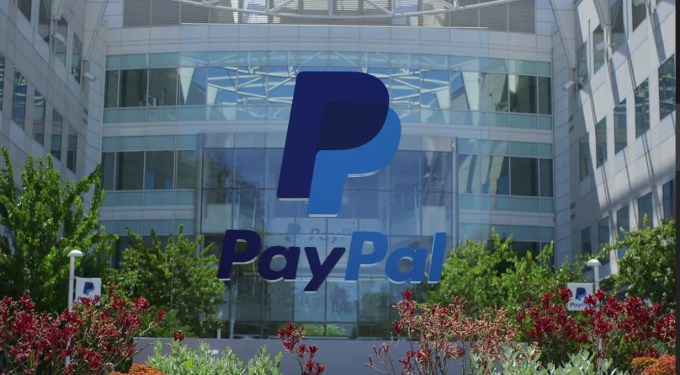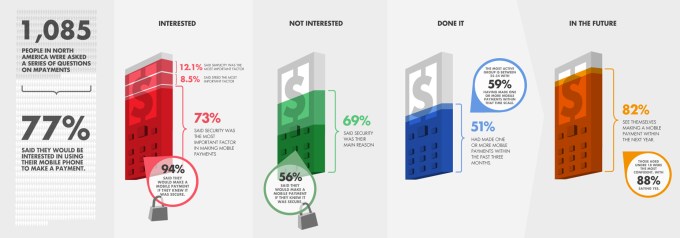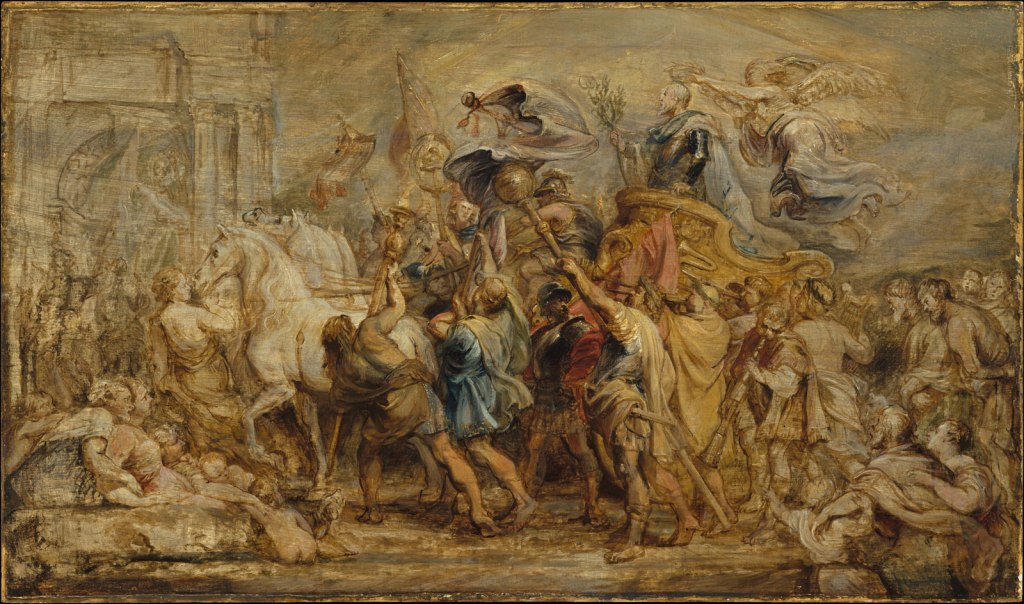Dana Stalder
More posts from Dana Stalder
While the war to control mobile payments has been broadly covered over the last several years, it seems that the tactical warfare that has been at play is less understood by most observers.
It’s been a tale of conflict, closed door bargaining, and one with a David vs Goliath subplot and huge fortunes at stake. Many watched and waited as PayPal and Google battled the oligopoly of the Networks (Visa, Mastercard, Amex), only to be surprised by a twist ending.
PayPal’s Attempts To Move Offline
For PayPal, the smartphone revolution presented the entry point into offline sales that it had been waiting for. The PayPal wallet, previously limited to use via a web browser, could potentially be in every consumer’s pocket (a la the mobile phone). In 2010, PayPal seized on the opportunity and began a series of strategic moves to extend their online payment network into the $3 trillion offline payment world.
They signed some early, big offline merchants (i.e. Home Depot) and began work with several point of sale vendors to integrate into their embedded merchant card terminals. And, most important of all, they began negotiations with the major payment processors (players like First Data, who do the heavy lifting in managing payment processes for the Networks) to enable PayPal as a form of payment on the more than 10 million merchant card terminals installed across the U.S.

The ambitious strategy, however, was met with many expected challenges and the rollout has been painfully slow. Payment processors proved to be challenging to work with. They sought economics out of the relationship that were untenable for PayPal and their allegiance with the Networks was being tested.
If that weren’t enough, alternative paths to get integrated into merchants’ points of sale proved equally difficult. It’s been an uphill battle for a relatively new entrant, once again trying to rely on established tracks laid by the Networks.
In the online world, PayPal’s ascent was equally complex, but the stars were aligned around their value proposition and the objectives of the Networks. In the late 1990’s, there were hundreds of millions of dollars of e-commerce occurring on eBay (on its way to billions) and those transactions were being settled with checks and money orders.
PayPal provided the means to cheaply and easily onboard those eBay Sellers on to the card Networks, in the process shifting potentially billions of dollars of payment volume to the Networks. PayPal was good for the Networks and they cooperated. PayPal was also good for eBay, as they accelerated the velocity of transactions by speeding up the payment cycle, so eBay acquired PayPal.
Google Wanted A Shot at Owning Mobile Transactions Too
Google in 2010, like the Networks and PayPal, recognized the value of offline payments and the potential for a new entrant to play a major role with the explosion of smartphones. Google wanted a shot at being a major player here, but for different reasons. For Google, it was all about the data.
By sitting in the middle of a consumer’s offline payment spend, they would have a window into where a consumer is spending and how that spending is influenced by advertising. For the first time, Google would be able to “close the loop” from advertisement exposure to consumer spending, like they were already able to do on the web, and thereby address much more of the advertising market. In particular, they could sell more advertising to the CPG brands, a huge and previously unpenetrated advertising market for Google
In 2011, Google pioneered the vision for NFC payments and secure tokenization (more on these technologies in a bit). It was a beautiful concept, but like PayPal, they too ran into execution challenges. They needed to partner with the big mobile operators who had their own visions of owning offline payments. And, they were early; ahead of the terminal upgrades upon which the whole solution depended. Google Wallet, while the right vision, was stalled.
The Networks’ Effort to Own Mobile Payments
In the mean time, the Networks were busy at work figuring out how to make sure the mobile phone was an expansion opportunity for them and not a threat. The strategy they executed was simple in concept, but complex in execution. The plan was to do what they do best: define standards and rules by which their existing network could be extended to operate in a world where the mobile phone replaced the physical bank card. Two key standards they placed bets on:
-
NFC (Near Field Communications) was the protocol by which data would be wirelessly transmitted from the phone to the merchant card terminal. NFC was a standard the Networks had rallied around about ten years ago, but had failed to get traction for lack of merchant support and consumer value proposition. Tapping a card was not much simpler than swiping a card. Now was the time for NFC’s second act.
-
Tokenization via a “secure element” was the means by which a card number could be stored on a mobile phone and transmitted by NFC to the merchant card terminal. In simpler terms, it was a means to (i) store a bank card number on a secure chip in a mobile phone and (ii) dole out tokens that were proxies for that card number, resulting in a more secure system than plastic bank cards and that could be manufactured and distributed by third party mobile phone manufacturers.
The Networks’ strategy ensued as they put all their weight (and chances) behind these two protocols. Their first step was to figure out how to get merchant card terminals to support NFC and the means to do this was, once again, to define and legislate standards.
In 2006, Europe mandated the use of “chip & pin” security cards (aka EMV). These cards, based on EMV standards developed as far back as 1994, provided additional layers of security. They were becoming widely adopted across the world and were proving to drive down fraud costs. In the U.S., efforts to drive EMV adoption had stalled.
Card fraud was not viewed as big a problem as in the rest of the world (this was before Home Depot and Target security breaches), and moving to “chip & pin” would require upgrades of all merchant card terminals across the US, estimated to cost over $6B.
And then, Main Street was hit with the 2008 recession, and there was even less interest in forcing expensive upgrades. The Networks, however, had another reason to move to EMV. Coincidentally, or maybe not, it was pretty certain that when merchants upgraded their terminals to support EMV, they would also gain NFC capability.
The Networks made their move. In 2011 and 2012 the Networks cooperatively announced the mandated upgrade of US payments networks to EMV. All merchants would be required to upgrade their payments terminals to support EMV, or take on liability for fraudulent transactions. Conveniently, support for NFC would be a byproduct of this upgrade.
The next step to enable secure mobile payments, was to garner support for tokenization. Starting in 2013, the Networks again collaboratively defined and later published standards by which tokenization would work. Many insiders tell me this was the fastest any such standard that required cooperation among the Networks had ever gone from concept to final published standard.
With the key standards and technology in place, and banks and merchants on board, the Networks now needed a major mobile phone deal to bring consumers along and make it all work. Enter Apple–the perfect distribution partner–a master at bringing disparate parties together and creating consumer demand out of nowhere.
The Victory Goes to The Networks
In the Fall of 2014, ApplePay was launched, and as they say, the rest was history. Mobile payments won’t take off overnight, and Google Wallet, with Apple paving the way, is now poised to capture Android offline payments. But, after a 5 year set of skirmishes, it’s clear that the first victory in mobile payments goes to the Networks, leaving PayPal to fight another day.

The Next Battle for Google and PayPal
For Google, the next several years will be about fast-follow execution. They need to draft off of the technology and deal structures that were put in place by the Networks and Apple. They are unlikely to get the economic shares that Apple was able to extract, but that is ok if they can leverage the data for advertising.
For PayPal, the story is more complicated. In Fall of 2015, PayPal becomes an independent, publicly traded company and, in many respects, it will have more to lose if it doesn’t make the right set of strategic moves in a world where the mobile OS is poised to become the wallet of choice for consumers. For online payments (PayPal’s entire business), PayPal will need to develop a value proposition for consumers that is greater than (1) Privacy: shopping without sharing your card number and (2) Convenience: all your cards are digitally stored and you don’t need to pull out your physical wallet. Apple and Google are now better than parity for these propositions. These innovations will likely orient around meta commerce services like merchant loyalty / incentives, spend management and consumer to consumer. In any event, the pace of innovation will need to be accelerated to defend the empire that has been built.
The other interesting question is whether or not PayPal remains an independent company for much longer, or does the spin-out by PayPal set it up for takeover in the next couple of years. It would be easy to argue that is a spectacularly valuable asset for one of the major Networks, with a digital first global footprint, a more flexible technology stack than any of the incumbents have, direct relationships with millions of consumers and merchants, and an enormous direct debit network.
It will be an interesting second battle in the ongoing war.































Comment